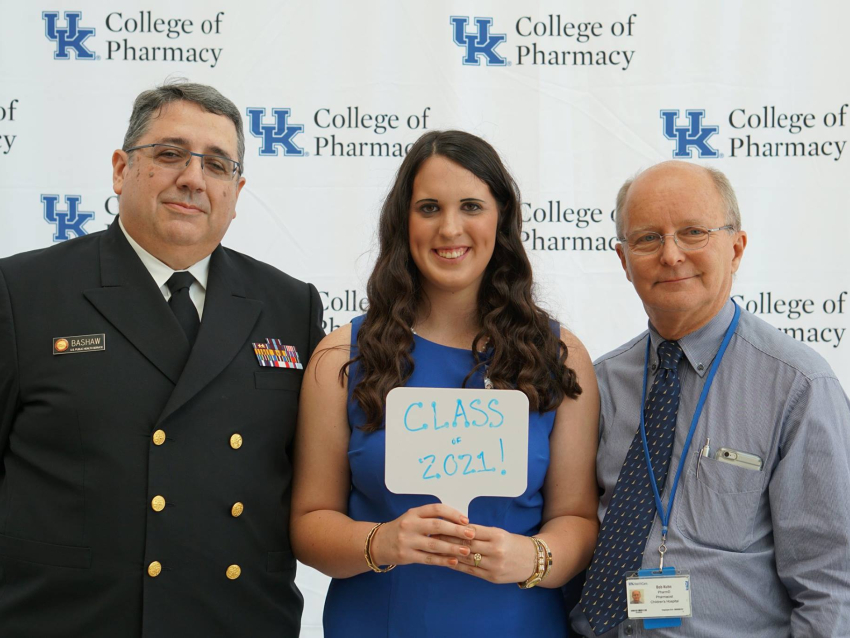Upon reaching the mandatory retirement limit of 30 years of service in the USPHS, Captain Bashaw retired. Still, he returned to the FDA, following a mandatory “break in service” as Senior Science Advisor to the Director-Office of Clinical Pharmacology, where he still serves today. His primary role is to oversee dermal absorption related policies including sunscreens, and nanotechnology. With regards to sunscreens, he was one of the FDA co-authors of the two notable Journal of the American Medical Association (JAMA) publications on sunscreen absorption that have been widely reported in the news media. His contribution to the studies was the development of the study paradigm and supervising the initial patient dosing at the clinic site. Following the study, he was the lead author on the FDA issued study guidance document for these types of studies.
While an inspiration to many, Bashaw has had a profound impact on at least two people, specifically his niece Shelby Ferrell, a fourth-year pharmacy student at UKCOP and his nephew, Mitchell Wong, a third-year pharmacy student at Rutgers School of Pharmacy. Ferrell says that her uncle was her inspiration for attending pharmacy school.
“I was very excited to follow in my uncle’s footsteps and continue the UK tradition,” said Ferrell.
“UK is very important to my family, and we are very proud to be from here.”
Ferrell spoke about the unique opportunity of seeing her uncle’s commitment to keeping people safe and his dedication to life-long learning. She hopes to embody those same qualities as she enters the patient care side of pharmacy. “I am very lucky to have him as my uncle,” said Ferrell.
Dr. Bashaw’s opportunities were made possible by his critical thinking skills and the specializations within UKCOP’s program. His choice was the industrial area of concentration, but each specialty offers its students opportunities they won’t find within the others. He advises students to carve their own paths.
“The ability to converse on a breadth of pharmacy topics made me a better candidate for the FDA and complemented my clinical skills learned at UKCOP,” he said.
His story demonstrates the UK College of Pharmacy’s long-standing tradition of giving students remarkable opportunities to develop in their agility, creativity, and self-awareness. The College, along with the University of Kentucky, encourages all students to pave their own way, no matter how non-traditional they might be.

